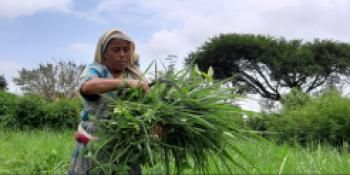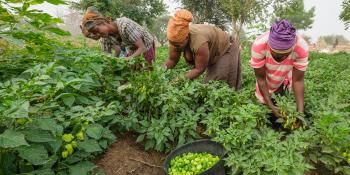Labour saving technology to empower women smallholder farmers
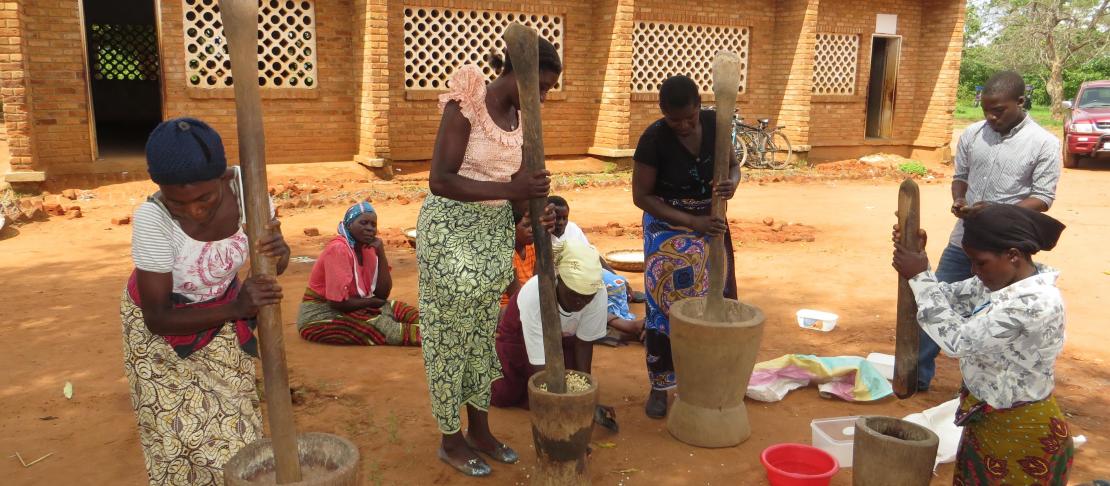
Millions of the world’s smallholder women farmers have limited access to farm energy, mechanization and the most basic of agricultural and agri-processing tools.
Many of women smallholder farmers are using labour intensive agricultural hand tools for onerous tasks such as weeding, planting, harvesting and crop/food processing. With minimal access to alternative energy sources (draught animals or mechanised farm equipment) such smallholders remain largely dependent on human labour for cultivation and agri-processing. This technology and energy deficit trap can perpetuate poverty, when the source of farm power is predominantly human labour.
If you want to know more about research on closing the gender gap in farming under climate change:
- read our special blog series on Closing the gender gap
- watch the presentations and the panel discussion from the Closing the gender gap event
- follow the #AgGenderGap event hashtag on twitter
The labour constraints facing women smallholder farmers arise for a range of reasons, including poverty; low levels of education and awareness of the importance of improved agricultural tools; use of poorly manufactured tools; cultural perceptions limiting the adoption of tools and implements; lack of linkages with local toolmakers; and lack of adequate market research by tool producers, particularly in relation to tools used by women smallholders with limited purchasing power.
Labour saving technologies and tools could help improve the livelihoods of women smallholder farmers. The effective adaptation of smallholder farmer agri-systems and livelihoods to climate change will require increased access by farmers to labour saving technologies and tools. Routes out of poverty for smallholder rural communities will require a swathe of innovations that improve the labour productivity of their agricultural systems. A key challenge is how to enable smallholders to generate more income and agricultural produce whilst at the same time reducing the labour burden on women and children so that their livelihoods can improve.
Empowerment through farmer-participatory design and user-led innovation
The 3D4AGDEV program is harnessing the creativity and innovation of women smallholders in Malawi to develop new or improved labour saving agricultural tools. Advocates of the power of grassroots innovators (such as Anil Gupta of the Indian Honeybee Network) have highlighted that “the minds on the margin are not marginal minds.”
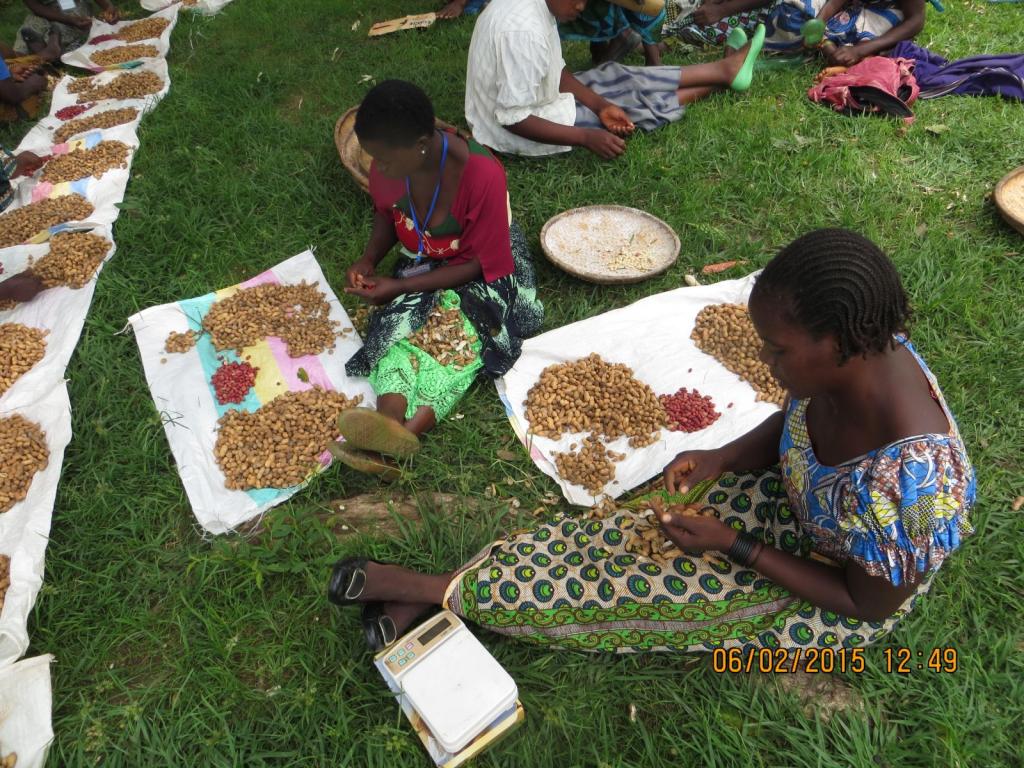
Majority of groundnuts are shelled by hand by women smallholders in Malawi. Photo: Zewdy Gebremedhin / 3D4AGDEV NUI Galway
The farmer participatory 3D4AgDev Program is harnessing the power of grassroots innovators. The program is linking the potential of User-Led Innovation with Rapid Prototyping (via 3D printing, arc welding and metal casting) to enable women smallholder farmers in Africa to design and develop their own labour saving agricultural tools, tailor-made for their cultures, soils and cropping systems.
The 3D4AgDev Program was kick-started by a Bill and Melinda Gates Foundation (BMGF) Grand Challenges Exploration (GCE) Phase I grant to the Plant & AgriBiosciences Research Centre (PABC) in the National University of Ireland Galway (NUI Galway) in 2013. The 3D4AgDev Program is a research partnership program between the NUI Galway PABC and Concern Worldwide and is hosted at CIAT Malawi. Key partners also include Bunda College of Engineering, Makerbot Industries and the CGIAR CCAFS program.
The 3D4AGDEV program is working with smallholder women innovator groups in Northern and Central Malawi (Nkhamenya and Kabudula respectively). Each innovator group works with the 3D4AGDEV program to design and on-farm test improved or new labour saving agricultural tools. High-labour peaks and tasks across daily schedules during rainy and dry seasons have been identified to indicate where improved tools are urgently needed. Local resource mapping has pinpointed opportunities for local design of tools, while opportunities for local manufacturing of tools have also been identified.
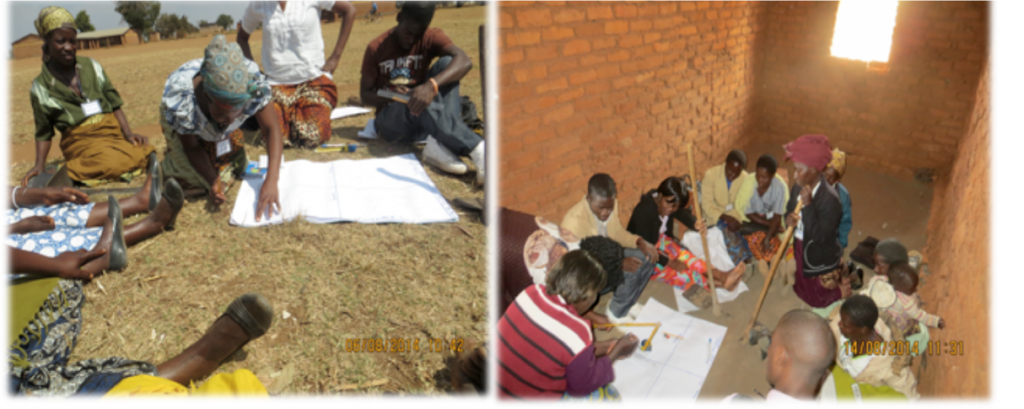
3D4AGDEV Research team conducting focus groups and working with women smallholder farmers in Northern and Central Malawi. Photos: Zewdy Gebremedhin / 3D4AGDEV NUI Galway
The 3D4AGDEV farmer participatory design sessions with innovator groups have revealed significant capacity of the women innovator groups to identify, propose and design improved labour saving agri-tools and agri-processing technologies for labour and time consuming tasks. Rapid-prototyping of tool designs has been conducted and prototype tools have been tested against existing tools in on-farm trials involving the women innovator groups. The farmer-designed tools have displayed major labour saving potential, with the women smallholders exhibiting significant demand for the next phase of the 3D4AGDEV program to mass-produce and disseminate the new labour saving tools. The most promising tools are now being scaled up for production and dissemination using a social enterprise approach involving the women smallholders.
Through linking the women smallholder farmer groups to user-driven innovation and rapid-prototyping processes, the status of rural women can be improved. The research process has demonstrated the significant ingenuity and creativity of the smallholder women farmers. The next phases of the 3D4AGDEV program will involve a scale-up process whereby smallholder women farmers can move “rung by rung” up a technology ladder via a 3D4AGDEV social enterprise model that can ultimately improve livelihoods and incomes.
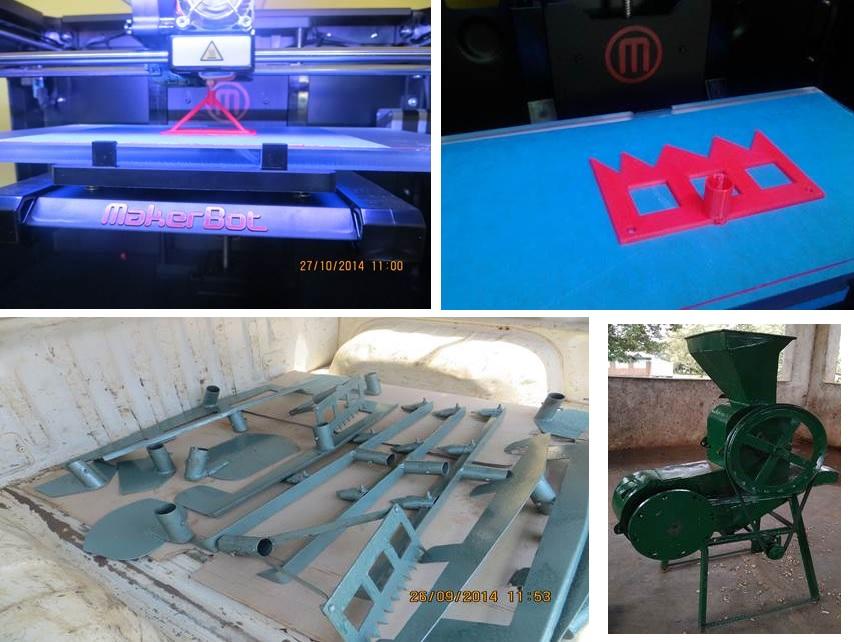
Clockwise: 3D4AGDEV 3D printer platform in Malawi; 3D printed weeding hoe design of women smallholder innovators; Arc welding to make agri-tool prototypes; Women farmer designed labour-saving groundnut sheller. Photos: Zewdy Gebremedhin / 3D4AGDEV NUI Galway
Zewdy Gebremedhin is a 3D4AGDEV Research Officer conducting her PhD research on labour saving technologies for women smallholders. Prof. Charles Spillane and Dr. Una Murray are engaged in 3D4AGDEV research management and supervision.
All three contributed to this blog and are members of the Plant and AgriBiosciences Research Centre (PABC) at the National University of Ireland Galway where the 3D4AGDEV Program is located.


